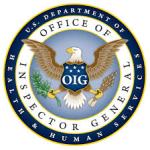 The HHS Office of Inspector General in a fraud alert released 6-9-15 is telling physicians to be cautious about entering into payment agreements that could violate the Anti-Kickback statute. In the alert, OIG tells physicians entering into such payment arrangements that their compensation must reflect the services’ market values. Further, OIG notes that such an arrangement could violate the Anti-kickback Statute if it seeks to increase the number of referrals the organization receives from those physicians.
The HHS Office of Inspector General in a fraud alert released 6-9-15 is telling physicians to be cautious about entering into payment agreements that could violate the Anti-Kickback statute. In the alert, OIG tells physicians entering into such payment arrangements that their compensation must reflect the services’ market values. Further, OIG notes that such an arrangement could violate the Anti-kickback Statute if it seeks to increase the number of referrals the organization receives from those physicians.
OIG Special Fraud Alert: Laboratory Payments to Referring Physicians
 The Office of Inspector General of the Department of Health and Human Services today issued a Special Fraud Alert pertaining to relationships between laboratories and referring physicians. Payments from labs to physicians who refer were targeted in the Alert. The Alert also reiterates their suspicion of so-called “carve out” compensation relationships where state and federal healthcare program dollars are removed from the payment formula (which was previously addressed last year in Advisory Opinion 13-03). While the Alert does not add anything new to the government’s view of such relationships, it does underscore the very suspect view the OIG has of payment relationships between labs and the physicians who refer to them. Careful compliance with the Personal Services and Management Contracts Safe Harbor continues to be a core concern.
The Office of Inspector General of the Department of Health and Human Services today issued a Special Fraud Alert pertaining to relationships between laboratories and referring physicians. Payments from labs to physicians who refer were targeted in the Alert. The Alert also reiterates their suspicion of so-called “carve out” compensation relationships where state and federal healthcare program dollars are removed from the payment formula (which was previously addressed last year in Advisory Opinion 13-03). While the Alert does not add anything new to the government’s view of such relationships, it does underscore the very suspect view the OIG has of payment relationships between labs and the physicians who refer to them. Careful compliance with the Personal Services and Management Contracts Safe Harbor continues to be a core concern.
Justice Department Hits Physician Owned Distributorships (PODS)
 For the first time, the Department of Justice (DOJ) has fired a shot at a physician owned distributorship (POD). In the case, the DOJ suit claims that the ownership interest of a neurosurgeon in a spinal surgery device distributorship has caused him to perform unnecessary surgeries.
For the first time, the Department of Justice (DOJ) has fired a shot at a physician owned distributorship (POD). In the case, the DOJ suit claims that the ownership interest of a neurosurgeon in a spinal surgery device distributorship has caused him to perform unnecessary surgeries.
PODs have been the source of considerable controversy for years. A couple years ago, they caught the attention of Congress. The Office of Inspector General of the Department of Health and Human Services (“OIG”) has even issued a Fraud Alert making clear their dislike of PODs and sending a clear shot across the bow of those who are in that industry. In 2006, the Office of the Inspector General of HHS and CMS expressed major concerns about PODs, and cited concerns about “improper inducements.” At that time, the OIG stopped short of prohibiting them, but called for heightened scrutiny. CMS itself has stated that PODs “serve little purpose other than providing physicians the opportunity to earn economic benefits in exchange for nothing more than ordering medical devices or other products that the physician-investors use on their own patients.”
OIG Shoots Down Physician Owned Distributorships (PODS)
Physician owned distributorships (PODs) have been the source of considerable controversy for years. A couple years ago, they caught the attention of Congress. Now, the Office of Inspector General of the Department of Health and Human Services (“OIG”) has issued a Fraud Alert making clear their dislike of PODs and sending a clear shot across the bow of those who are in that industry.
PODs distribute various things, most commonly surgical implants and devices, that are reimbursed by insurers. A patient needs a spinal rod, a surgical implant/device company makes it and a distributor rep distributes it. Device/implant companies usually contract with distributorships to sell their products. Distributorships contract with reps who are paid commissions for sales. Surgeons who actually order the devices sometimes think “Since I’m the one doing the surgery and ordering all this stuff, why can’t I earn something from that? I’m not ordering anything I don’t need or that I don’t think is good for the patient.” PODs are one way for physicians to financially benefit from the sales of devices and items their patients need, but they have never been more controversial than now.Continue reading
